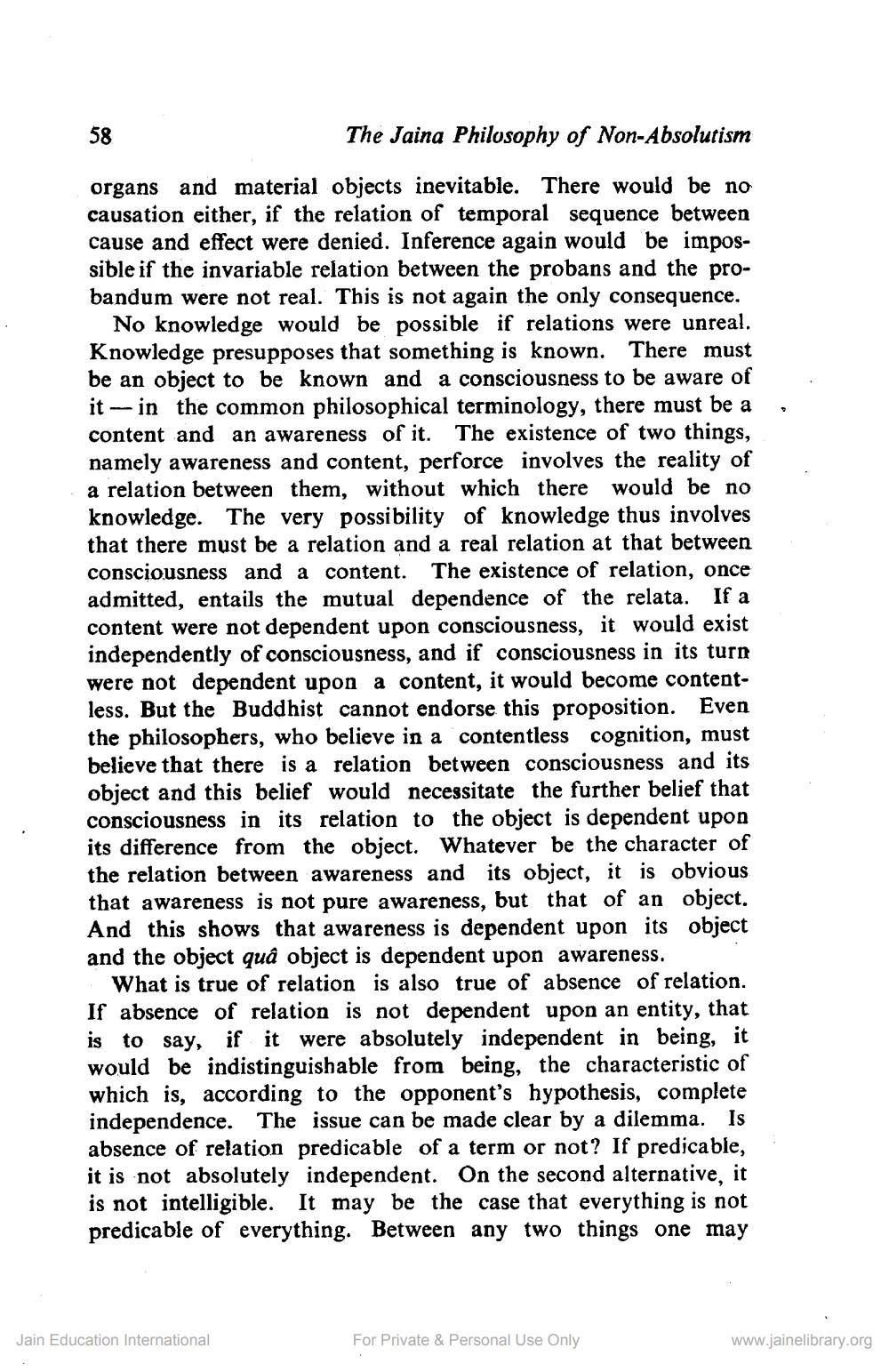________________
58
The Jaina Philosophy of Non-Absolutism
,
organs and material objects inevitable. There would be no causation either, if the relation of temporal sequence between cause and effect were denied. Inference again would be impossible if the invariable relation between the probans and the probandum were not real. This is not again the only consequence.
No knowledge would be possible if relations were unreal. Knowledge presupposes that something is known. There must be an object to be known and a consciousness to be aware of it - in the common philosophical terminology, there must be a content and an awareness of it. The existence of two things, namely awareness and content, perforce involves the reality of a relation between them, without which there would be no knowledge. The very possibility of knowledge thus involves that there must be a relation and a real relation at that between consciousness and a content. The existence of relation, once admitted, entails the mutual dependence of the relata. If a content were not dependent upon consciousness, it would exist independently of consciousness, and if consciousness in its turn were not dependent upon a content, it would become contentless. But the Buddhist cannot endorse this proposition. Even the philosophers, who believe in a contentless cognition, must believe that there is a relation between consciousness and its object and this belief would necessitate the further belief that consciousness in its relation to the object is dependent upon its difference from the object. Whatever be the character of the relation between awareness and its object, it is obvious that awareness is not pure awareness, but that of an object. And this shows that awareness is dependent upon its object and the object quâ object is dependent upon awareness.
What is true of relation is also true of absence of relation. If absence of relation is not dependent upon an entity, that is to say, if it were absolutely independent in being, it would be indistinguishable from being, the characteristic of which is, according to the opponent's hypothesis, complete independence. The issue can be made clear by a dilemma. Is absence of relation predicable of a term or not? If predicable, it is not absolutely independent. On the second alternative, it is not intelligible. It may be the case that everything is not predicable of everything. Between any two things one may
Jain Education International
For Private & Personal Use Only
www.jainelibrary.org




